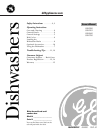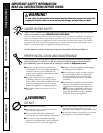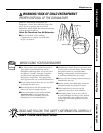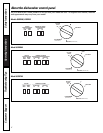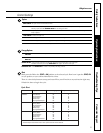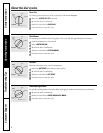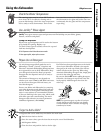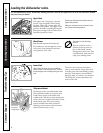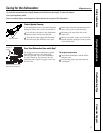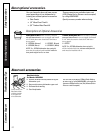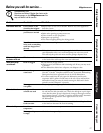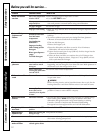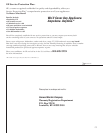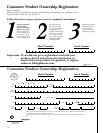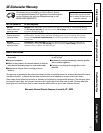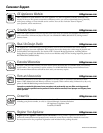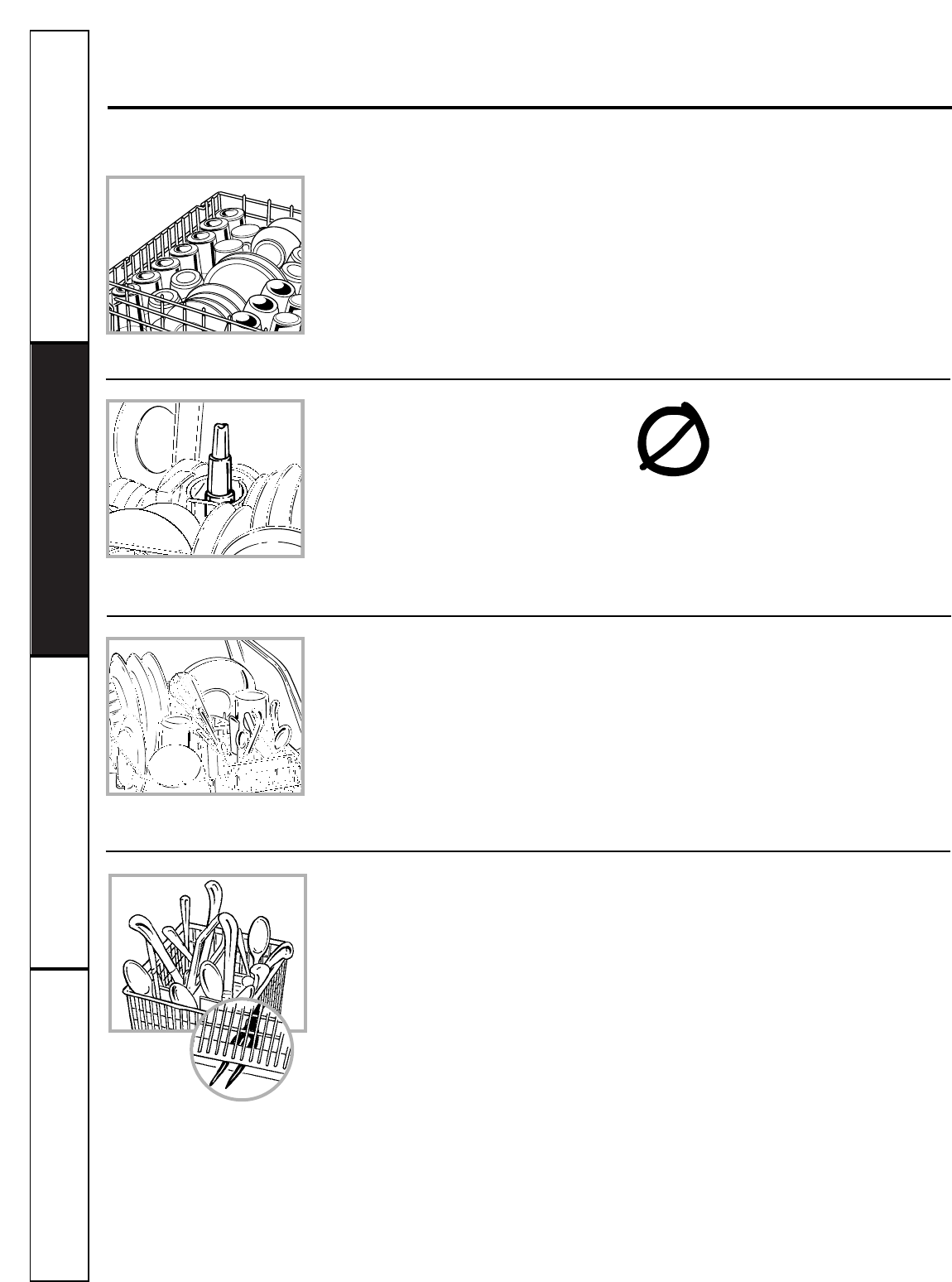
Loading the dishwasher racks.
Operating Instructions Safety InstructionsConsumer Support Troubleshooting Tips
8
Upper Rack
The upper rack is for glasses, cups and
saucers. Cups and glasses fit best along
the sides. This is also a secure place for
dishwasher-safe plastics. The upper rack is
good for all kinds of odd-shaped utensils.
Saucepans, mixing bowls and other items
should be placed face down.
Secure larger dishwasher-safe plastics over two
fingers when possible.
Make sure small plastic items are secure so they
can’t fall onto the heating element.
Don’t block it or load tall things
next to it.
Also, be careful not to let a
portion of an item such as a
pot or dish handle extend
through the bottom rack. This
could block the wash arm and
cause poor washing results.
Wash Tower
Keep the center area clear in the lower rack.
The wash tower rises through the center
of the lower rack during the wash and
rinse portions of the cycle.
Lower Rack
When loading the lower rack, do not load large
platters or trays in the front right corner. They may
prevent detergent from circulating during the wash
cycle.
The lower rack is best used for plates,
saucers, and cookware. Large items such
as broiler pans and racks should go along
the sides. Load platters, pots and bowls
along the sides, in corners, or in the back.
The soiled side of items should face the
center of the rack.
Silverware Basket
Put flatware in the removable basket with
fork and knife handles up to protect your
hands. Place spoons in the basket with
handles down. Mix knives, forks and spoons
so they don’t nest together. Distribute evenly.
Small plastic items, such as measuring
spoons and lids from small containers,
should go in the bottom of the silverware
basket with silverware on top.
For best dishwashing results, follow these loading guidelines. Features and appearance of racks and silverware baskets
may vary from your model.
Don’t let any
item extend
through bottom.



